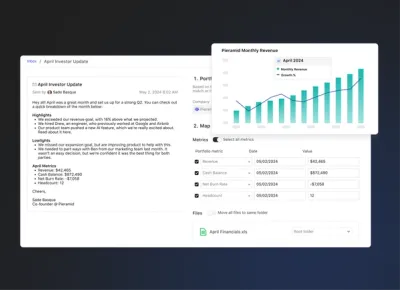
The most common startup funding stages are: Pre-Seed, Seed, Series A, Series B, and Series C. As the company matures and develops it moves through each of the rounds as it seeks further funding. It all begins at a pre-seed or seed round where companies are often still pre-revenue which is why raising capital, from friends and family for instance, is so important to help get ideas off the ground and form a company from it.
Preseed can also be considered a seed round, since it’s also a startups earliest funding stage and includes investment from angels or friends and family. Some note that the main difference between seed and pre-seed is that a pre-seed round is often much less (usually under $150,000k but can also go up to $2 million). It is also obtained through sources outside of any kind of institution, like a bank. It is still common though in the pre-seed round to give up equity in exchange for capital.
Three of the main sources for pre-seed funding come from either angel investors, the company founders themselves, or friends and family. The terms and conditions for angel investors though are often different than what you might offer to people you know directly. It’s worth mentioning that this doesn’t mean you shouldn’t provide clear terms to your friends and family, it just means you might structure it a bit differently.

Why Should You Raise Money From Friends & Family?
Different funding options make sense at different stages of a business’s lifecycle. For example, raising capital with a simple idea and business plan varies greatly from raising capital when you have $100M in revenue. In the early days, more founders are turning to their friends, family, and immediate network to launch their business and prove its ability to grow into a larger organization.
Pre-seed funding is used to start the company itself and is therefore considered more of a high-risk investment since it hasn’t had the chance to prove itself. This can make it harder to gain capital from traditional investors or a bank, which is why seeking funding from friends and family can often be an easier choice.
This risk is often compensated through more equity given to those who invest early (when the company is at its lowest valuation) rather than later. This makes it compelling and rewarding for those who invest early and is often why there are angels who specifically seek out early-stage companies to invest in, while they are (pre)seed.
Knowing this can help shape your mindset from feeling like you’re asking a favor from your friends and family to inviting them to have the opportunity to invest early and reap the potential financial success that can be gained from their investment in your company.
Elizabeth Yin, Founder of the Hustle Fund, is a huge believer in small checks from friends and family, check out her thoughts below:
Raising from friends and family can also be beneficial because you have people who are not only financially invested but personally invested as well. What people don’t often realize is that your investors will often become contributors to your business in the form of feedback, guidance, and suggestions. When your investors are your friends and family though, you can trust that these suggestions not only have your companies best interest at heart but your own as well.

Who Counts as Friends & Family?
It is your job as a founder to uncover the potential investors around you. Seeking out VCs is generally a bit more cut and dry (check out our investor VC database, Visible Connect) than friends and family. For example, friends and family investors could be:
- Relatives
- Friends or friends of friends (try seeking out the ones that have relevant experience or have a relevant network of people they can reach out to)
- People you know from school (mentors, professors, classmates)
- Past work colleagues
- Community members (virtual or in-person networks that you’re a part of, such as mastermind groups, co-working spaces, and business networks)
Who Should you Approach for a Friends and Family Round?
This question is best approached by first assessing what kind of round you’ll raise from them- such as equity, convertible notes, loan, or gift. Since this method of fundraising isn’t as straightforward it is important you first decide the form of investment you will take (more information on that to come) since this determines the role that they will play in your company in the future. If you want them to have a seat at the table and are hoping they can bring value through their expertise and network, then it is important that you are more selective. If you are raising via a crowdfunding platform, in the form of a loan, or as a gift then it is likely that your friends and family will have little to no involvement in your business, which means you do not need to be as selective for who participates in the round.
Most importantly you want people to invest who believe in you and your business, who understand that there is risk involved, and only contribute what is feasible for them. Lastly, it helps if they understand your business and are able to contribute in other ways through their knowledge, connections, or ongoing support.
Who Should you Avoid Asking?
It is always tricky to mix family and friends with business or money which is something to be very aware of going into this. Taking certain precautions is advised to avoid any problems that may arise because of mixing personal relationships with business. One of these precautions would be to avoid asking the wrong people. Here are some examples of what to avoid:
- People who you know will try to give feedback which will not be useful but will be expected to be taken
- Someone who you can not have open, honest, and constructive communication with
- If you know that the financial means of the person is unstable and they might be reliant on the money they are giving you
- People who don’t understand investment risks and wouldn’t be ok to lose the money which they invested in you

Avoid these Common Mistakes
You want to make people aware that even though you see the opportunity in your business and want to assure it’s a success, there is always a risk of the business failing. Avoid asking people who are in a situation that if they lost the money they invested in you it would cause them serious hardship that could ultimately affect your relationship. You also don’t want to put anyone in a position that as a friend or family member you want to avoid seeing them in.
It’s also important to not make your friends and family feel pressured into investing, or bad if they choose not to. You can also let them know that you would also appreciate support in other ways such as time spent with you to discuss things you might be going through, feedback, or helping by creating awareness for your company (this could be in the form of word of mouth or reaching out to their network for additional support).
How to Raise a Friends and Family Round
Keep it Professional
You should try to be as professional as possible and treat communication and documentation of things as you would with a real investor. This means having a business plan, creating a pitch deck, and making sure to share any relevant metrics or successes you’ve had so far, as well as where you expect the business to go and how you plan to grow it.
Have a Number in Mind
Decide what your target number is that you want to raise and back that number up with the calculations you used to arrive there. This is an important step to share as people want and need to understand how you plan on spending their investment and the milestones you plan on reaching.
What are the Terms
Then determine what kind of round you want to raise from your friends and family. There are a few options that are very different from the other. The most common are; investment in return for equity in your company, loans, convertible notes, and donation based.
Once that is decided it’s best to create a formal contract that documents everything so it’s all clearly outlined and everyone can be held accountable by it.
Communicate
On an ongoing basis, you can communicate these updates in a less formal way through email, text, social media, etc. Staying in front of the people you potentially want follow on funding from is vital- this is true for this stage but will become even more crucial as you move further along in the next funding stages.
Test Social Media!
Before you even start pitching friends and family you can also leverage social media to do the pitching for you in an indirect way. Once you’ve caught their attention, spiked curiosity, and inspired them on your idea you might be able to already move them to want to make an investment before you even make the ask.
Tell a Story
Strengthen your storytelling abilities by taking people on your startup’s journey, so they feel involved and inspired. Having this skill is important as you try to move people to take action whether it be investors or customers. People are more inspired to make decisions when they feel they came up with the idea themselves through compelling factors they calculated based on the evidence you presented.

How to Make the Ask in an Indirect Way
Avoid coming across in a way as if you were asking for a favor, but rather that you want to offer them an opportunity to gain access to an idea that has great potential for success. They will realize themselves the added benefit that they are also helping you make your company a reality.
If you want to take yourself out of the equation to start, it’s best to utilize other platforms that can tell your story and reach more people in an indirect way. This could help ease any uncomfortable confrontations that might come from a direct no.
One option is to use a crowdfunding platform, which also allows you to have the opportunity to find other people who are interested outside of your network, so you’re casting a wider net when looking for those first investors.
Use the herd effect to help rally others to back your idea after you have your first initial investors on board. People are often motivated and prompted into action when they see that others around them are already taking part. Think of ways that you can showcase this (make sure you ask permission from those that you spotlight) on either a landing page, shoutout on social media, or mention in the opening text of wherever you might be directing people.
You can also ask friends and family who have already invested in you to share out information as well since they have proven to believe in your company and are likely able to advocate it well. Also if you were looking to get funding beyond just your inner circle this is a good way to do so as people are more likely to trust recommendations made by people they trust rather than companies themselves.
Related Resource: Our Favorite Seed Round Pitch Deck Template (and Why It Works)
Common Friends & Family Questions
How Much Capital Should You Ask For?
There is no right or standard number to go off of here as this completely depends on how much you need to get you through the first few months of your business until you either are making a profit or are ready to raise another round. Ranges are usually anywhere from $10,000 to $150,000 but can also go up to 2 million. Use modeling and advice from the market to get a ballpark idea. You can check out a template for modeling your early financials here.
How To Make Sure You Don’t Over-Dilute Your Equity?
You will want to set up anti-dilution provisions which help keep the percentage of the investor’s original ownership intact.
It’s a clause that is constructed into options and convertible preferred stocks that helps protect investors from their investment potentially losing value.
Anti-dilution provisions can discourage this from happening by tweaking the conversion price between convertible securities, such as corporate bonds or preferred shares, and common stocks. In this way, anti-dilution clauses can keep an investor’s original ownership percentage intact.

What Do You Offer Your Friends and Family for their Investment?
This depends on what kind of agreement you have come to with them based on if the money you are receiving is a loan, gift, or is in exchange for equity. No matter which option you decide to go for you would offer them a document which states in detail either the repayment options or how much stake they now have in your company.
How Do You Manage The Relationship Between Your Friends and Family Investors?
Just like with any other type of investor you want to keep things professional and offer them regular updates. As well make sure you have formalized and documented any agreements so that everything is in writing to make sure there is no confusion and everyone is on the same page.
How Do You Know When To Buy Out Toxic Investors?
If you feel that your relationship with your friend or family member is suffering or your business because of their involvement/ investment then it is a good idea to buy them out. It is good to be aware that this possibility exists no matter who it may be. It is wise to already think how you might do this and have something in writing as well that everyone agrees to ahead of time so if the time comes you already have an agreed upon course of action.
Use Visible to Manage Your Raise
When raising any round, it is most important to keep all stakeholders informed on your process and progress through documented updates. This is also a good practice for you because it forces you to track your success and evaluate important metrics you should be tracking. This process starts with your friends and family round and is good to strengthen for your later fundraising rounds.
Share with them anything and everything on your progress. This can include your wins, current status, relevant metrics, insights, and asks- where you could potentially use their help. This can be done through sending an email, arranging a call with all stakeholders, or recording a video to message out (this should be accompanied but something in written form though which is better for people to refer back to). To get inspiration on how an update should look, check out our update template library or try Visible for free to send out those first updates!





